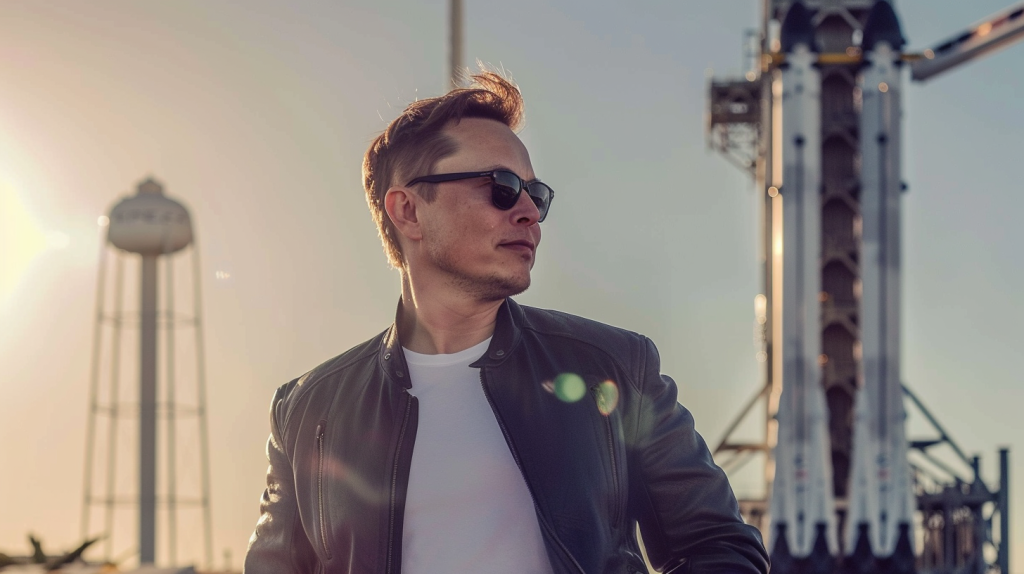Please Sign the Petition to Nominate Elon Musk

Elon Musk: A Nobel Prize Candidate for Contributions and Innovations in Rocketry
Elon Musk, the visionary entrepreneur behind SpaceX, has revolutionized the field of rocketry and space exploration. His contributions and innovations have not only pushed the boundaries of technology but also made significant strides toward making space travel more accessible and sustainable. These achievements position Musk as a strong candidate for the Nobel Prize, particularly in the fields of Physics or Economic Sciences, given the transformative impact of his work.
Revolutionizing Space Travel
Musk’s most notable contribution to rocketry is the development of reusable rockets. Before SpaceX, rockets were typically discarded after a single use, making space travel prohibitively expensive. Musk envisioned a different approach, drawing parallels with the aviation industry where planes are reused multiple times. This vision led to the creation of the Falcon 9 rocket, which can land back on Earth and be refurbished for future flights. The successful reusability of Falcon 9 has dramatically reduced the cost of launching payloads into space, heralding a new era of more affordable and frequent space missions.
Innovations in Rocketry
Under Musk’s leadership, SpaceX has introduced several groundbreaking technologies and methodologies in rocketry:
- Falcon Heavy: The world’s most powerful operational rocket, capable of carrying large payloads to a variety of orbits. It combines the power of three Falcon 9 rockets, providing unprecedented lift capability.
- Starship: A fully reusable spacecraft designed for missions to Mars and beyond. Starship aims to carry up to 100 passengers on interplanetary voyages, representing a significant leap toward Musk’s goal of making humans a multi-planetary species.
- Rapid Iteration and Development: Musk has implemented a rapid development cycle at SpaceX, reminiscent of Silicon Valley’s tech companies. This approach has accelerated innovation, allowing SpaceX to test, fail, learn, and iterate faster than traditional aerospace companies.
- Vertical Integration: By producing many of its components in-house, SpaceX has reduced dependency on external suppliers, lowered costs, and increased control over the production process.
Impact on Science and Economy
Musk’s innovations have had a profound impact on both science and the economy:
- Scientific Advancement: SpaceX’s rockets have facilitated numerous scientific missions, including launching satellites for Earth observation, deploying instruments for deep-space exploration, and delivering supplies to the International Space Station (ISS). These missions have expanded our understanding of the universe and supported critical research.
- Economic Growth: The reduction in launch costs has democratized access to space, enabling a surge in commercial space activities. Small companies and startups can now launch satellites, fostering innovation and economic growth in the burgeoning space industry.
- Inspiration and Education: Musk’s work has inspired a new generation of scientists, engineers, and entrepreneurs. His public persona and ambitious goals have captured the public imagination, sparking interest in STEM (science, technology, engineering, and mathematics) fields.
Conclusion
Elon Musk’s contributions to rocketry and space exploration represent a paradigm shift in how humanity approaches space travel. His relentless pursuit of innovation, combined with a vision for a multi-planetary future, has redefined the possibilities of human achievement in space. The Nobel Prize, with its history of honoring individuals who have significantly advanced human knowledge and capability, would be a fitting recognition of Musk’s transformative impact on rocketry and space exploration. His work not only advances scientific and economic frontiers but also inspires a global audience to dream bigger and reach farther than ever before.
